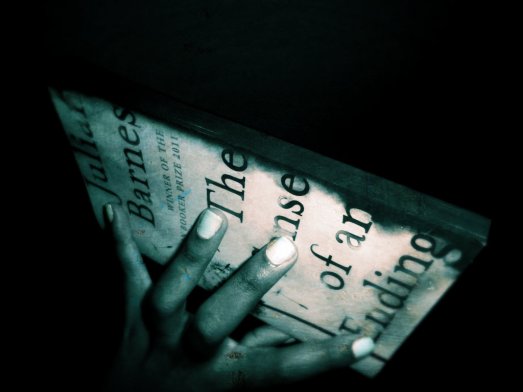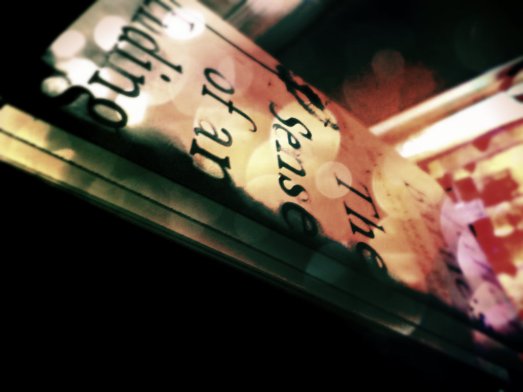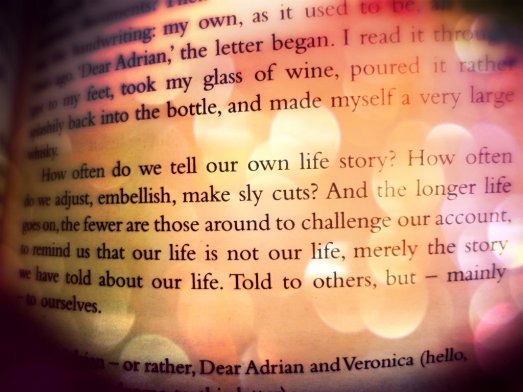How reliable is human memory? This is the central preoccupation of this unassuming yet fascinating book by Julian Barnes.
The paperback edition of the book is simply beautiful. The pages are edged in black that bleeds off from the cover like running ink; a book that has what I like to call great ‘shelf power’ and will look even better with age; a keeper. Definitely not one for the kindle.
You always expect the winner of the Booker to be rather hefty but this is a slim volume (a novella?). With this book, every word counts, it’s concise. For lack of a better word, it is an elegant book made up of beautifully constructed prose. I read it in one sitting on a gloomy Saturday.
Tony is a retired man who’s satisfied with ordinariness; a life of holidays and mowing lawns. In the first half of the book, Tony recounts his final days at school and the memories of a particular friend, Adrian, and then of his relationship with Veronica during his time at university. The second half brings us to the present and the receipt of a bequest from Veronica’s mother, recently passed away and who met Tony only briefly on an uncomfortable weekend many decades before.
This brings Veronica back into Tony’s life and we begin to question his reliability, what he has just told of his past, undermined. He is now forced to re-evaluate the events of his past, and sets out to discover what really happened all those years ago, and to what extent he was responsible for what transpired. Our desire to know what exactly happened propels the narrative to a surprising and contemplative conclusion.
The Sense of an Ending explores the notion of memory and how it cannot be trusted, that it is indeed constructed. We believe what we want to believe and the longer we live, there are fewer people (witnesses) who are able to contradict us, so this belief then becomes the truth. This notion that we can edit our histories, and by extension our lives, is truly fascinating.
This book has honestly had me questioning my life; my version of events so to speak. I’m pretty sure that my past isn’t how I’ve remembered it, it is how I’ve wanted to remember it.
I remember the amazing writer Joan Didion once saying, ‘We tell ourselves stories in order to live.’ And so we do. Do we?




